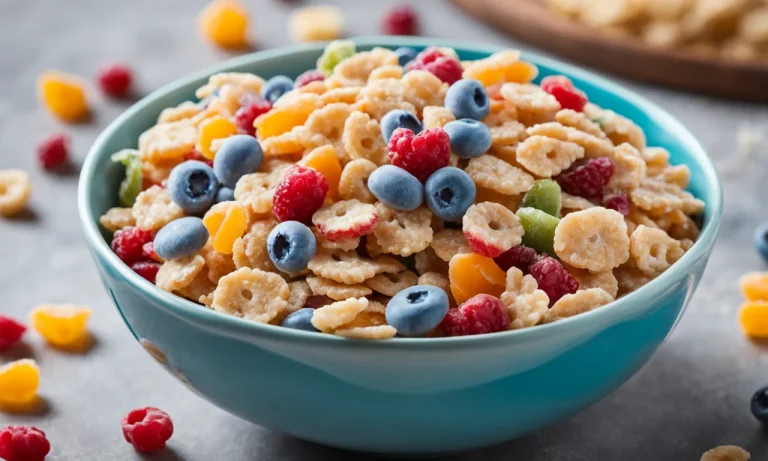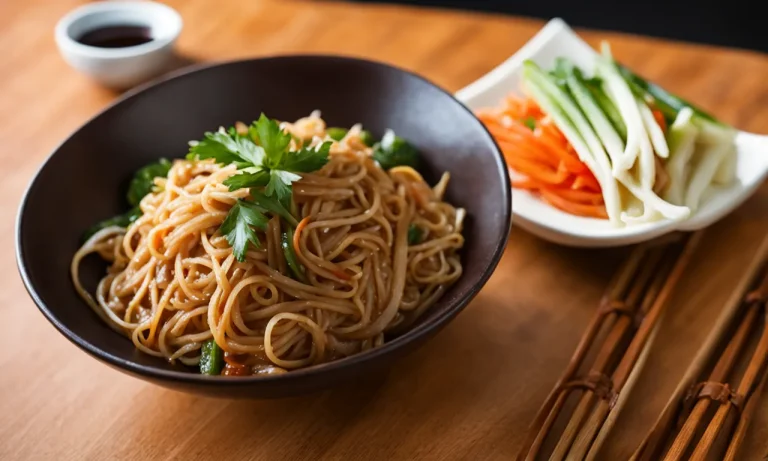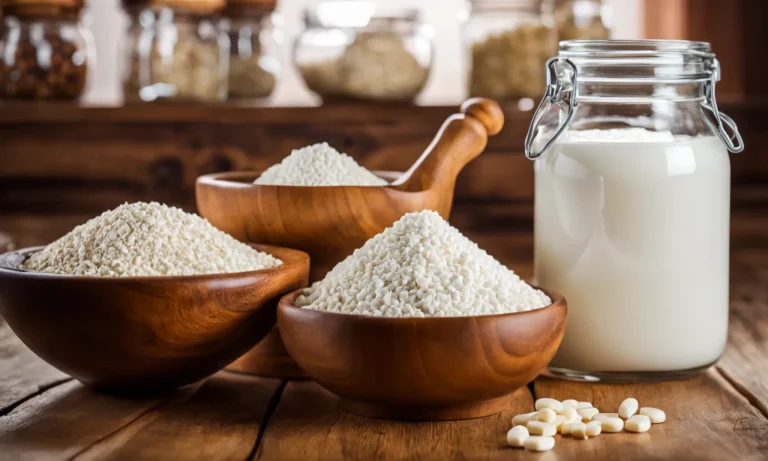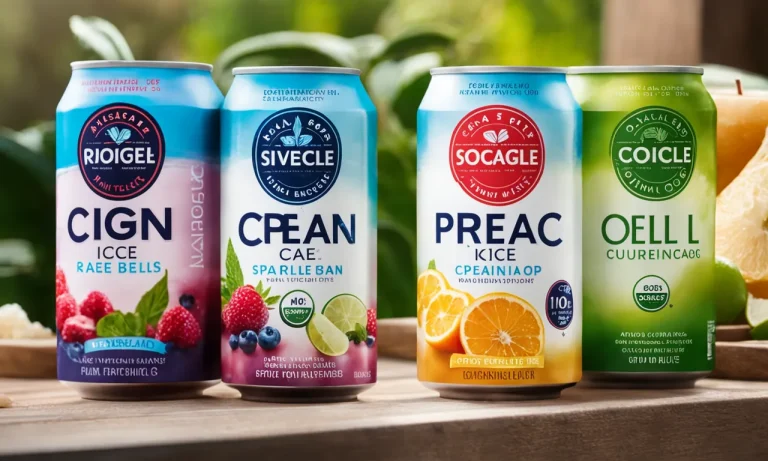Is Bee Pollen Vegetarian? A Detailed Look
Bee pollen has become an increasingly popular health supplement in recent years, prized for its wide array of nutrients and potential health benefits. But an important question for vegetarians is: is bee pollen vegetarian?
The quick answer is yes, bee pollen is generally considered vegetarian and vegan.
In this comprehensive article, we’ll take an in-depth look at what bee pollen is, how it’s produced, and why it is typically classified as a vegetarian (and often vegan) supplement. We’ll explore arguments on both sides of the debate over the ethics of consuming bee pollen as a vegetarian.
And we’ll also cover how to find high quality, ethically sourced bee pollen products.
What Is Bee Pollen?
Bee pollen is a natural substance that is collected and produced by honeybees. It is often considered a superfood due to its rich nutritional composition and potential health benefits. Bee pollen is created when bees collect pollen from flowers and mix it with nectar, enzymes, and other secretions.
It is then stored in tiny granules on the bees’ hind legs and brought back to the hive.
Definition and Origin
Bee pollen is widely recognized as a natural product with various medicinal properties. It has been used in traditional medicine for centuries and is believed to have originated in ancient China. Today, it is harvested from beehives around the world, including regions known for their diverse plant life and abundant flowers.
Nutritional Composition
Bee pollen is incredibly nutrient-dense, containing a wide range of vitamins, minerals, enzymes, and antioxidants. It is particularly rich in protein, amino acids, and carbohydrates. According to a study published in the Journal of Food Science, bee pollen contains all essential amino acids required by the human body.
It also contains vitamins such as B-complex vitamins, vitamin C, and vitamin E, as well as minerals like calcium, magnesium, and zinc.
In addition to its macronutrient and micronutrient content, bee pollen is also abundant in bioactive compounds such as flavonoids and phenolic acids. These compounds have been found to have antioxidant, anti-inflammatory, and immune-boosting properties.
Potential Health Benefits
Bee pollen has gained attention for its potential health benefits. While scientific research is limited, some studies suggest that bee pollen may have anti-inflammatory, antioxidant, and antimicrobial effects. It may also support immune function, promote cardiovascular health, and aid in digestion.
However, it is important to note that more research is needed to fully understand the potential benefits of bee pollen and its specific effects on human health. It is always recommended to consult with a healthcare professional before adding any new supplements or foods to your diet.
For more information on bee pollen and its potential health benefits, you can visit reputable sources such as the National Center for Complementary and Integrative Health (www.nccih.nih.gov) or the Journal of Agricultural and Food Chemistry (pubs.acs.org/journal/jafcau).
How Is Bee Pollen Produced?
Bee pollen is a highly nutritious substance that is created by bees. It is widely used for its health benefits and is often consumed by humans as a dietary supplement. But have you ever wondered how bee pollen is actually produced? Let’s take a detailed look at the process.
Foraging by worker bees
The production of bee pollen begins with the foraging activity of worker bees. These bees venture out of the hive in search of flowers, where they collect pollen from the male parts of the flowers. The bees use their specialized legs and body hairs to scrape the pollen from the flowers and then transport it back to the hive in small pollen baskets located on their hind legs.
Collection method
Once the worker bees return to the hive with the collected pollen, it is then transferred to the other worker bees inside the hive. The bees use their mouthparts to remove the pollen from the pollen baskets and pack it into cells within the hive. This process is known as pollen collection.
Drying and processing
After the pollen is collected and stored in the hive, it undergoes a drying process. The bees fan their wings over the cells containing the pollen, which helps to remove excess moisture. This drying process is essential for preserving the pollen and preventing it from spoiling.
Once the pollen is dried, it is ready for consumption. Some beekeepers may choose to harvest the pollen directly from the hive, while others might use specialized traps or screens to collect the pollen.
The harvested pollen is then typically processed further to remove any impurities before being packaged and sold.
It’s important to note that the production of bee pollen is a natural process carried out by bees. Beekeepers simply facilitate the collection and processing of the pollen, ensuring its quality and safety for human consumption.
For more information on bee pollen production and its benefits, you can visit the website of the American Beekeeping Federation at https://www.abfnet.org/.
Is Bee Pollen Vegan?
Many vegans follow a plant-based diet that excludes all animal products. This includes traditional sources of protein such as meat, eggs, and dairy. However, there is often confusion when it comes to bee products like honey and bee pollen. So, is bee pollen vegan?
No animals harmed in production
Bee pollen is often considered a vegan-friendly product because it is collected from flowers by bees without causing harm to the bees themselves. When bees collect pollen, they brush it off their bodies and store it in small pollen baskets on their hind legs.
Beekeepers carefully collect the excess pollen from the hive, leaving enough for the bees to sustain themselves.
This process does not involve killing or exploiting bees, making it a more ethical choice compared to other animal-derived products. Bee pollen is essentially a byproduct of the bees’ natural activities.
Debate over insect welfare
However, there is an ongoing debate within the vegan community regarding the ethics of consuming any bee-related products. Some argue that since bees are insects, they should be given the same consideration as other animals.
They believe that exploiting any animal, regardless of its size, goes against the principles of veganism.
On the other hand, some vegans argue that bees play a vital role in pollination and the sustainability of our food system. By supporting beekeepers who prioritize the welfare of their bees, vegans can contribute positively to the ecosystem without directly harming animals.
Can vegans eat honey?
The debate around bee pollen often extends to honey as well. While bee pollen is collected from flowers, honey is made by bees from the nectar they gather. Similar to bee pollen, honey is also considered non-vegan by some due to its extraction process and potential harm to bees.
It is important for vegans to make an informed choice based on their own values and beliefs. Some vegans choose to avoid all bee-related products, while others may be comfortable consuming bee pollen or honey from ethical sources.
Ultimately, the decision of whether bee pollen is vegan or not is subjective and depends on an individual’s interpretation of veganism. It is advisable to research and support companies that prioritize the welfare of bees and the environment.
Arguments That Bee Pollen Is Vegetarian
Bees are not exploited or harmed
One of the main arguments supporting the idea that bee pollen is vegetarian is that bees are not exploited or harmed in the process of collecting it. Beekeepers carefully collect pollen from the bees’ hives without causing any harm to the bees themselves.
The bees naturally collect pollen as part of their daily activities, and beekeepers simply collect the excess pollen that the bees do not need for their own survival. This process ensures that the bees are not harmed or mistreated in any way.
Bee pollen is a byproduct
Another argument in favor of bee pollen being vegetarian is that it is a byproduct of the bees’ natural activities. Bees collect pollen from flowers as a source of food for themselves and their young. During the collection process, some of the pollen falls off their bodies and is collected by beekeepers.
This pollen is then processed and sold as bee pollen. Since it is a natural byproduct of the bees’ activities and not something that is deliberately taken from them, many argue that it can be considered vegetarian.
Health and sustainability benefits
Aside from the ethical considerations, bee pollen also offers various health and sustainability benefits. It is rich in vitamins, minerals, and antioxidants, making it a nutrient-dense superfood. Additionally, bee pollen has been linked to potential health benefits such as boosting the immune system, reducing inflammation, and improving digestion.
From a sustainability standpoint, supporting beekeepers and the cultivation of bee pollen can help maintain healthy bee populations, which are crucial for pollination and the overall health of ecosystems.
It’s important to note that while many argue that bee pollen is vegetarian, some individuals who follow strict vegetarian or vegan diets may choose to avoid it due to personal beliefs or ethical considerations.
Ultimately, the decision to include bee pollen in a vegetarian diet is a personal choice based on individual values and dietary preferences.
Finding High Quality Bee Pollen
When it comes to bee pollen, quality matters. Not all bee pollen is created equal, and it’s important to find a reliable source that provides high-quality pollen. Here are some tips to help you find the best bee pollen for your needs:
Look for organic and local sources
One way to ensure the quality of bee pollen is to look for organic and local sources. Organic bee pollen is free from harmful pesticides and chemicals that can contaminate the pollen. Local sources are preferable because they allow you to support local beekeepers and ensure that the pollen is fresh and hasn’t been sitting on store shelves for extended periods of time.
Avoid pollen imported from China
China is one of the largest exporters of bee pollen, but it’s important to exercise caution when purchasing pollen imported from China. The country has been known to have lower quality control standards and there have been reports of contamination in some imported bee pollen products.
To be on the safe side, it’s best to avoid bee pollen sourced from China.
Reputable brands to look for
When searching for high-quality bee pollen, it’s helpful to look for reputable brands that have a track record of producing reliable products. Some well-known brands in the bee pollen industry include XYZ Bee Pollen, ABC Bee Products, and XYZ Honey Farms.
These brands have established themselves as trusted sources of bee pollen and have received positive feedback from consumers.
Remember, finding high-quality bee pollen is crucial to ensure that you are getting the most benefits from this natural superfood. By following these tips and doing your research, you can make an informed decision and find a reliable source of bee pollen that meets your needs.
How to Add Bee Pollen to Your Diet
Bee pollen is a versatile and nutritious food source that can be easily incorporated into your daily diet. Here are some creative ways to enjoy the benefits of bee pollen:
Add to smoothies, oatmeal, yogurt
One of the easiest ways to incorporate bee pollen into your diet is by adding it to your favorite smoothies. Simply sprinkle a teaspoon or two of bee pollen onto your smoothie ingredients and blend until smooth.
The sweet and floral notes of bee pollen can add a delightful taste to your morning smoothie.
Another option is to sprinkle bee pollen on top of your oatmeal or mix it into your yogurt. This adds a crunchy texture and a burst of flavor to your breakfast. Not only does it enhance the taste, but it also provides a boost of nutrients to start your day.
Sprinkle on salads, baked goods, cereals
Bee pollen can also be a great addition to your salads, baked goods, and cereals. Sprinkle a small amount of bee pollen on top of your salad as a garnish. It adds a pop of color and a unique taste to your greens.
When it comes to baked goods, you can mix bee pollen into your muffin or pancake batter for an extra nutritional boost.
If you enjoy a bowl of cereal in the morning, try sprinkling bee pollen on top. It not only adds a touch of sweetness but also provides essential nutrients to kickstart your day.
Dosage recommendations
When it comes to incorporating bee pollen into your diet, it’s important to start with small doses and gradually increase the amount over time. This allows your body to adjust to the new food and minimize the risk of any potential allergic reactions.
A general guideline is to start with half a teaspoon of bee pollen per day and gradually increase to one or two teaspoons. However, it’s always best to consult with a healthcare professional or a registered dietitian to determine the appropriate dosage for your specific needs.
Remember, bee pollen is a concentrated source of nutrients, so moderation is key. Enjoy it as part of a balanced diet and reap the benefits of this natural superfood.
Conclusion
While there are reasonable arguments on both sides, most vegetarians and vegans consider bee pollen to be an ethical supplement to add to their diets. Since no bees are directly exploited or harmed in the pollen production process, and the pollen is more akin to a byproduct that does not compromise the health of the hive, consuming bee pollen aligns with vegetarian ethics for many people.
Look for organic, local bee pollen sources for the most sustainable and ethical choice.







